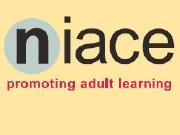NIACE launches inquiry into adult and youth literacy

NIACE has launched an independent inquiry into adult and youth literacy in England to support the estimated five million people still lacking the literacy skills needed for modern life.
The inquiry, led by Lord Boswell, a former Conservative education minister and long-standing supporter of adult learning, will focus on questions concerning literacy demands for individuals, organisations, communities and families in a period of economic challenge as well as effective training methods for the deliverance of literacy skills. Also to be discussed are the literacy requirements for getting (and staying in) sustainable and meaningful employment.
The UK is currently 21st in the OECD Human Development Index charting adult functional literacy where Norway is number one.
Lord Boswell said: “I have been delighted to accept NIACE’s invitation to chair their independent Inquiry into Adult Literacy. A successful society cannot rest easy on an exclusive educational base but demands an inclusive approach.”
He continued, “In this world of stringency of resources, we need to ensure that public money is used coherently to best effect, and that we make use of all suitable channels for learning, from the workplace, through the college sector, and including outreach, community and voluntary effort. We need to avoid simplistic solutions which themselves tend to perpetuate the problem and those which may suit people already on the margins of literacy, but overlook those who are harder to reach.”
Carol Taylor, director of operations at NIACE, said: “Much has been achieved over the past decade in relation to adult literacy in England through the Skills for Life strategy, which leaves a lasting legacy. However, there is still unfinished business and unmet need. A new government, in a new domestic and global context, seeks new solutions to the challenges which we face in balancing individual need and social and economic demands. We need to make sure that this Inquiry unlocks some of the answers to the crucial issue of literacy, particularly as we cope with the new demands of the 21st century.”
By 2020 the government’s ambition is for 95 per cent of the working population to be functionally literate and numerate.
Errol Anderson






Responses